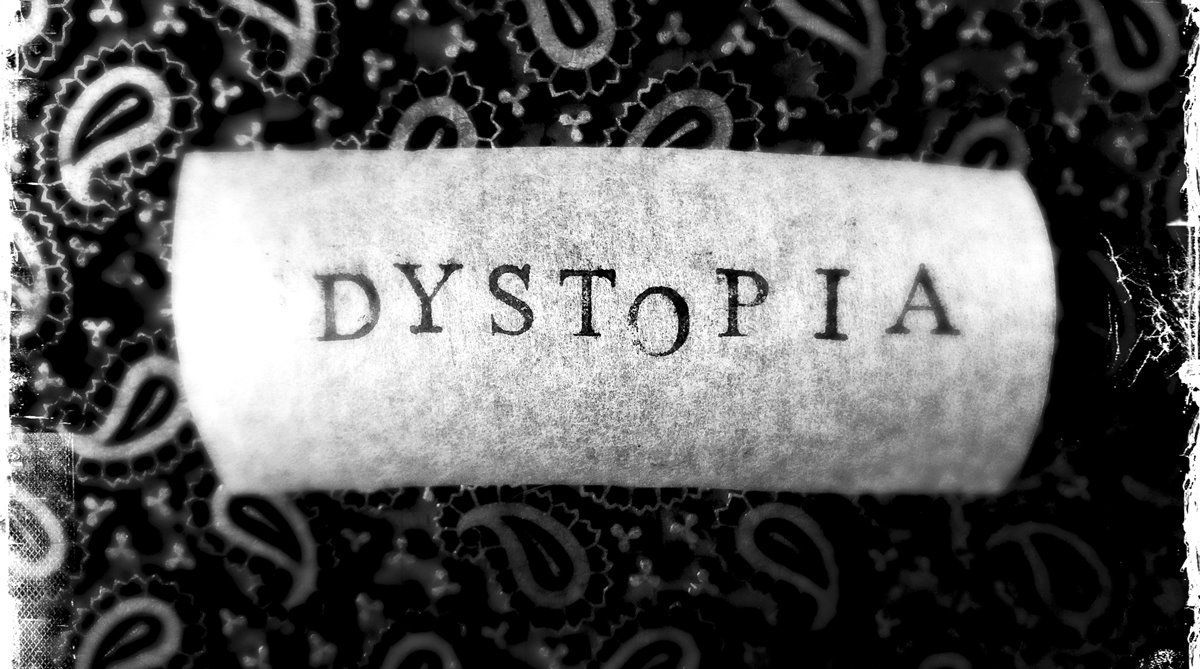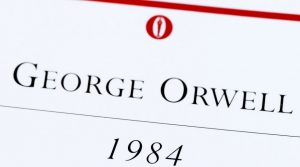Utopia reborn
“Progress is realization of utopia”, so believed Oscar Wilde. Utopia is no flight of infancy; it is the roadmap of the future and the lifeblood of societal change.
Several authors have written these beautiful but horrifying tales of near future

Mostly based in near future, the dystopian novels show a society that is completely controlled by a group of people who impose their will on others. (Photo: Getty Images)
Sir Thomas More wrote a story about a place where everyone had equal rights and they were free to do whatever they wanted to. He named his book Utopia that means a place where everything is perfect. Though More’s own end — he was beheaded for treason — was far from perfect, the fairytale-like world that he painted in Utopia definitely sounds like a future everyone would like to envision for themselves. We could have written more books like that, and continued his legacy, but since human history is filled with bloodshed and wars, we instead imagined a future that is bleak, dark and oppressive. These works are known as dystopian novels and they are everything that is not utopia.
Mostly based in near future, the dystopian novels show a society that is completely controlled by a group of people who impose their will on others. They show us a very horrifying picture of what happens when things go very wrong. The worst and best part about these books? No one apart from the protagonist, and the reader, seems to realise that things are unacceptable and they live in a blissful bubble of contentment. These novels serve as a warning of a future that is not far away if we do not change the way things are at present. Several authors have written these beautiful but horrifying tales of near future.
Here are five top dystopian novels you must read:
Advertisement
1984

“Big brother is watching you”
Despite its name, the book was published in 1949 and is a trendsetter in dystopian novels. The book remains scarily relevant even today. Apparently, there was an increase in its sales around 2016 after Donald Trump was elected the President. The novel is based in Oceania, a place where a single party rules in the name of Big Brother and keeps an eye on every action that people do. There are television screens and posters in homes, offices, reminding people that there is no free will. Winston Smith, the protagonist works in the records department and rewrites history. He is fed up of being watched and wants to rebel. He falls in love with Julia, his co-worker who shares the same ideas. Eventually they get caught and they are sent to the prison to redeem their ideas. George Orwell could have left the novel with Winston betraying Julia but he went ahead and gave the most heartbreaking line of the book-“Winston realized that he loved Big Brother”.
READ | Why George Orwell’s 1984 is relevant even today
The Handmaid’s Tale
“A rat in the maze is free to go anywhere, as long as it stays inside the maze”
The Handmaid’s Tale takes place in Republic of Gilead, a totalitarian state that has taken the place of United States of America. Low reproduction rates have forced some women to act like handmaidens (women who have only one purpose in life, to give birth to children) of elite couples. The novel by Margaret Atwood follows the life of Offred (that’s not her real name, she is a handmaid of Fred, who is her commander). The novel is so ghastly pessimistic that you might have to repeatedly stop after reading a few pages to take a breath. But once you finish the book and think, you realise how easily things can change the way they did in the novel. The worst part of the novel? The red clock that signifies women enslavement. Caution: You may have trouble sleeping for many nights after reading it.
Never Let Me Go
“The problem is, as I see it, is that you have been told and not told”
This book by Kazuo Ishiguro won the Nobel prize in literature for 2017. The story is narrated by Kathy, a carer who recollects about her life spent in blissful Hailsham School. At first, the novel seems almost harmless and you do not almost suspect anything. But suddenly, you will find that Kathy and her friends were raised to be organ donors and were providing for every vital organ till they were ‘complete’ — a fancy choice of word to make the dead appear brave. Your entire opinion on how you viewed the main characters and the book would changed completely after the reveal.
Fahrenheit 451
“A book is a loaded gun in the house next door. Burn it”
A dystopian society that burns books, can it get any worse than this? In this Ray Bradbury novel, Guy Montag is a fireman who lives in 24th century and sets fire to houses that have books. The people in this society watch excessive television, listen to radios that are strapped to their ears and talk without any purpose. Montag meets a girl named Clarisse and when he starts talking to her, he sees that there is no purpose to his life and ultimately joins Granger, an author. At the end some people bomb their country and everyone is dead except Guy and the “book people” and they plan to build a better future together. Saw what happened to people who do not read?
The Hunger Games
“No one will forget me. Not my look, not my name. Katniss. The girl who was on fire”
A dystopian society where kids fight with each other till death to entertain a small section of rich (I mean, whatever happened to televisions, books and radios!) The novel happens in The Capitol of Panem, where every year a boy and a girl are selected to represent their district and they fight to survive. Winning meant another year alive (of poverty and slavery) and losing meant death. Moreover, the pain and sufferings increase when the last round approaches to make the matches more interesting ( honestly?)
No nuclear explosion, no end of world, no third World War. Nothing. This is the scariest part of dystopian novels. One day things are normal and another day they just are not. It makes you wonder how far from truth these novels are. The most heartbreaking part about a dystopian novel? Each character seems to have accepted his/her fate and has lost every sense of free will. They no longer live, just exist and genuinely believe that things are better just this way.
The real question is, “better for whom?”
Advertisement